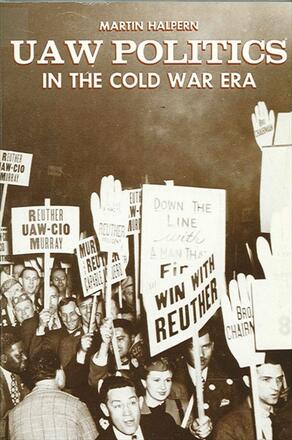
UAW Politics in the Cold War Era
Alternative formats available from:
Description
This is the first book-length study of the triumph of the Reuther caucus over the Thomas-Addes-Leonard coalition in the United Auto Workers union. The dramatic defeat of the left-center coalition had far reaching significance. It helped to determine the shape of postwar labor relations, the direction of postwar liberalism, and the fate of the left.
Based on manuscript sources, oral histories, and quantitative analyses of convention roll calls, UAW Politics in the Cold War Era places this union conflict in a national political context of postwar economic conflicts, the cold war, and the passage of the Taft-Hartley Act. Halpern offers a fresh point of view on the character of the two contending coalitions and the reasons for the Reuther triumph. His work is a valuable contribution to the current reassessment of the domestic politics of the early cold war years.
Martin Halpern has published articles in Labor History and The Michigan Historical Review.
Reviews
"This is an extraordinarily well-researched piece of work that offers its readers a detailed understanding of the most important internal conflict to engulf any trade union in the twentieth century. Halpern has an intimate sense of the politics and motivations — the political ecology, if you will—of that most complicated of trade unions, the UAW. He explains that the victory of the Reuther caucus was based not so much upon a rank and file rejection of the Communist-oriented left, as upon Reuther's ability to convince the UAW's local cadre that only an anti-Communist top leadership could protect their union from the rising tide of right-wing sentiment in the country as a whole. Within labor history, Halpern's work fills a big gap. " — Nelson Lichtenstein, Catholic University of America